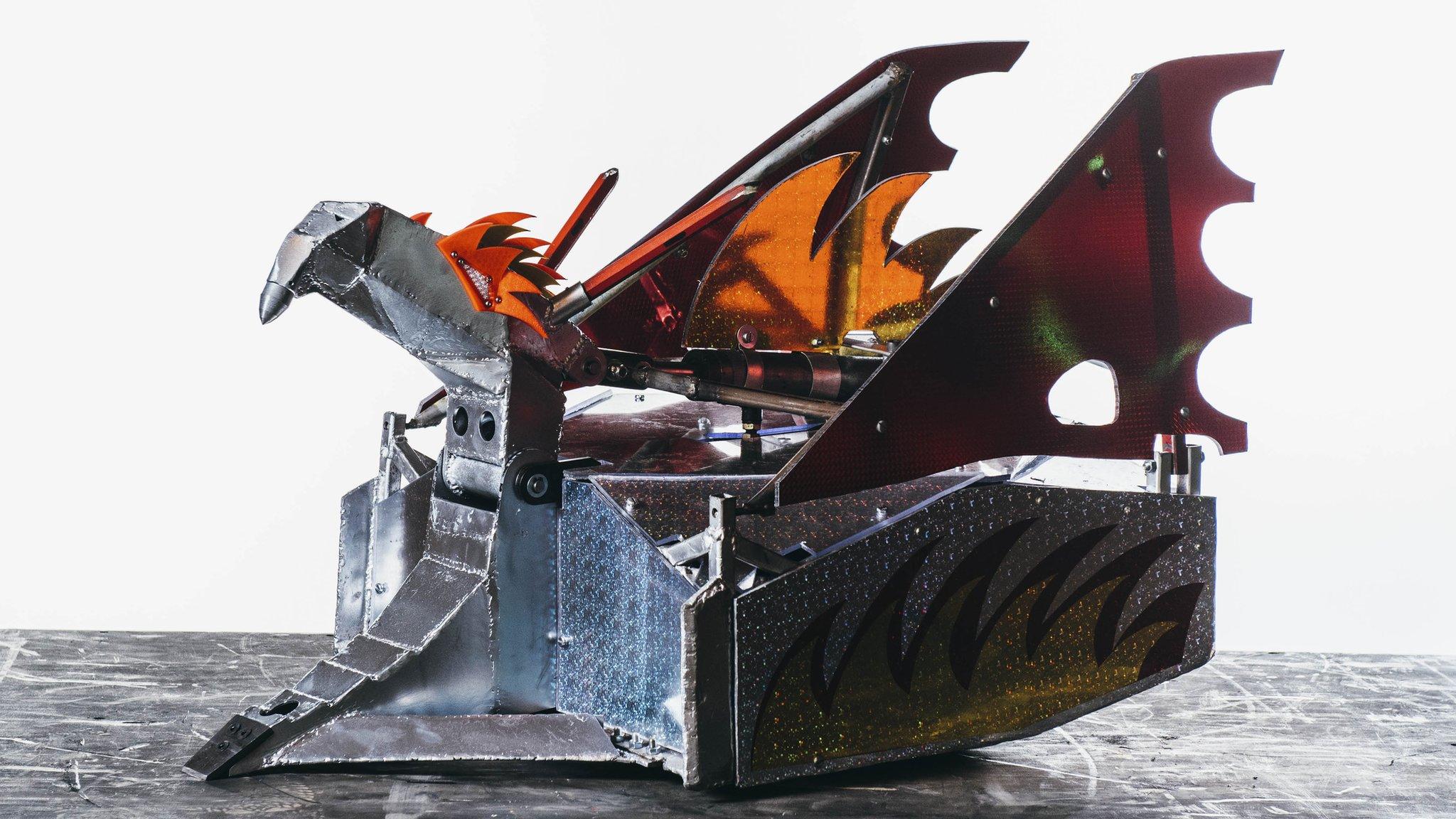The legacy of TV's Robot Wars
- Published
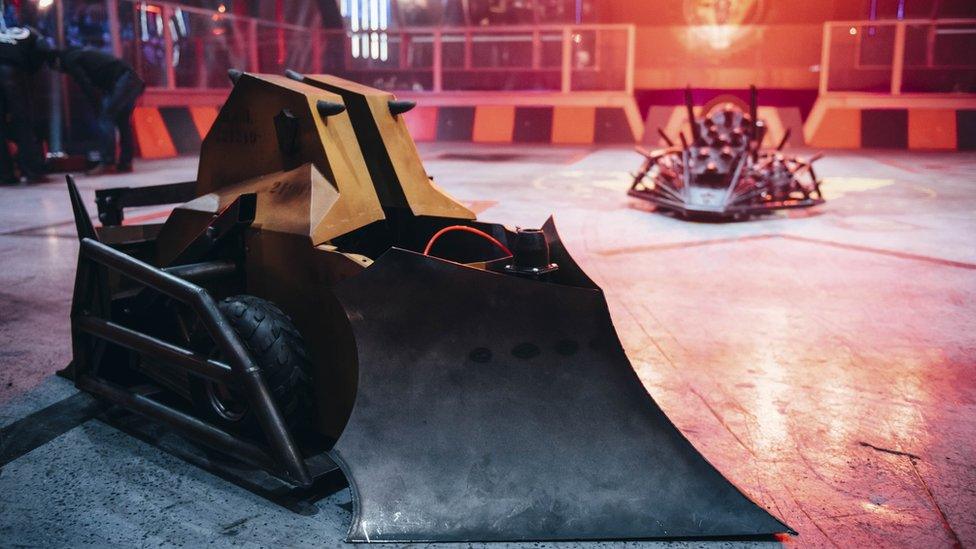
Robot Wars - the metal-crunching hit television series of the 90s - returns to the BBC on Sunday, following a 13-year break.
Back on the judging panel is Professor Noel Sharkey, a robotics expert who featured on the programme for five years.
Sharing memories of his time on the show, he told the BBC he was initially hesitant to take part...

I was a very reluctant judge for the first series of Robot Wars.
I was concerned that being on a popular TV show might damage my reputation as a university professor and as an educator.
Even after the first series, I thought that I should opt out - but then something quite remarkable happened.
When I toured around giving talks to young people, their questions were much more informed than before.
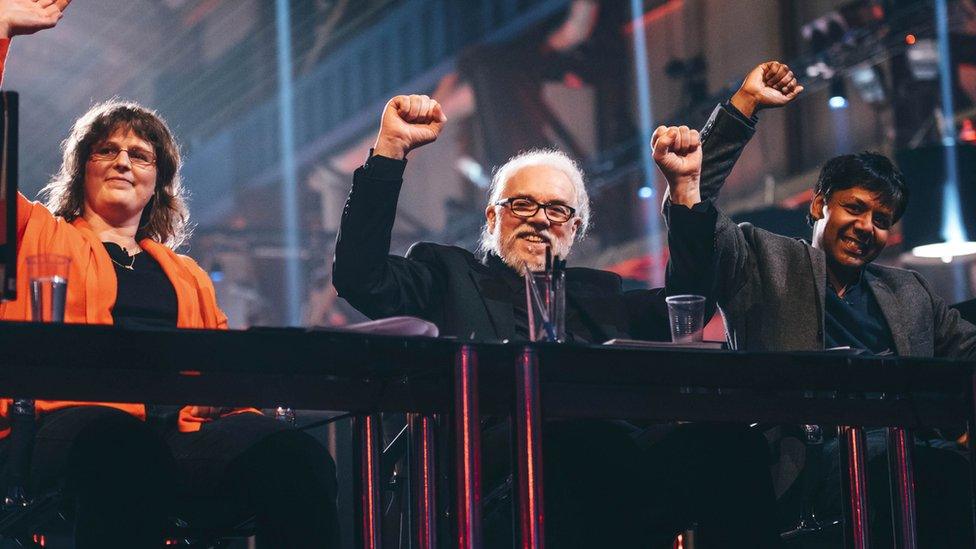
Noel with fellow judges Doctor Lucy Rogers and Professor Sethu Vijayakumar
Thanks to Robot Wars, the kids wanted to know about motor types, gearing, torque and about how robots worked. The inspiration to take up innovative engineering was clearly evident.
On the programme, the evolution of the machines was startling - almost unbelievable.
In the first series, the judges could sit with their feet in the arena. By the third, we were hiding under our table from a barrage of nuts and bolts.
Today, the arena is caged by a massive see-through bullet-proof box.
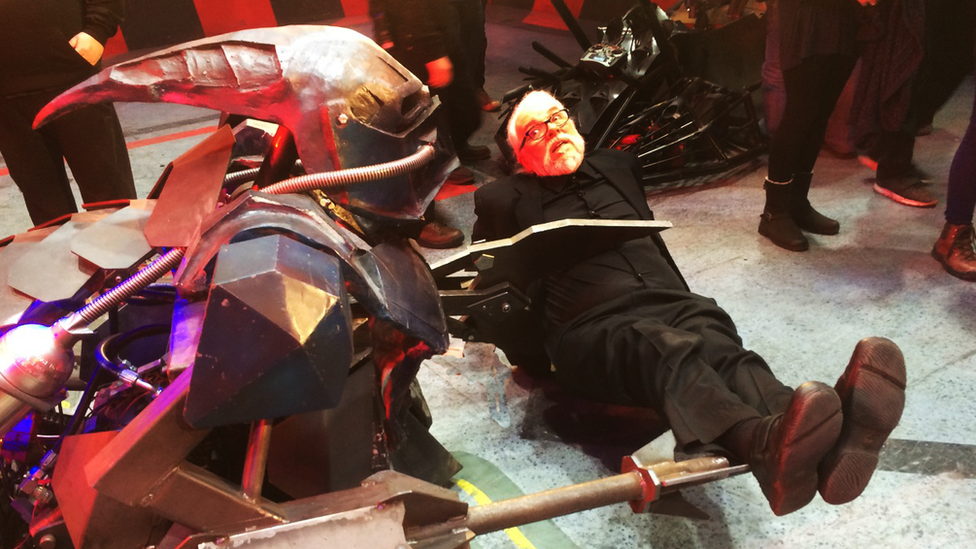
Noel has been getting to grips with the new house robots
I meet engineers all the time that say Robot Wars changed their lives and set them on the path to engineering.
It certainly changed my life and the way I looked at education. But it was probably the competitors who most inspired me.
Many were the kind of naughty kids who, like myself, did not get on in the school system. Like me, they were the rebels, the trouble makers and the comedians.
Today they're the very smart people in our factories and our trades.
Robot Wars has been a passion that has allowed them to exhibit their intelligence and creativity.
Education is a great thing and I highly recommend it to all. But please remember that while education makes you knowledgeable, it does not make you smart. The proof is in Robot Wars.
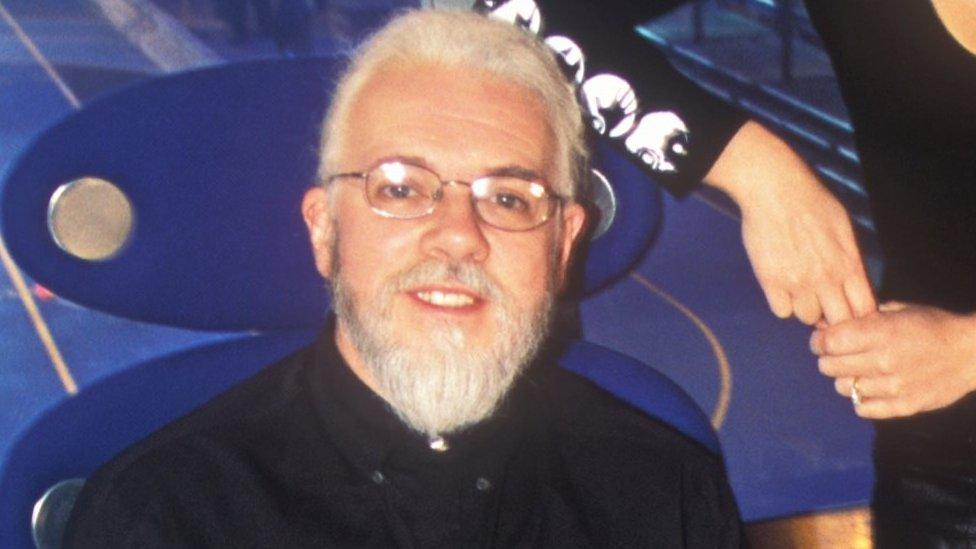
2002: Noel appeared on Robot Wars spin-off Techno Games
And it isn't just the boys with their toys. There have always been females competing and it has been wonderful to see a large increase in in the reboot.
I hope that many more will join next season with our excellent judge Dr Lucy Rogers from the maker community to egg them on.
Engineering departments in UK universities are pretty desperate to reduce the gender gap as it is still unacceptably large. So come on girls, make me proud.

Two myths about Robot Wars
"Robot Wars robots are not real robots".
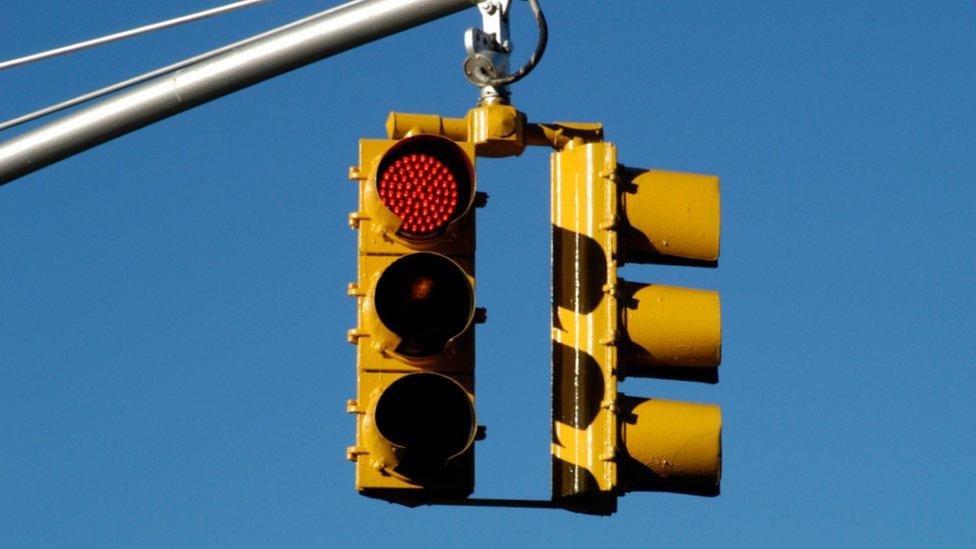
Traffic lights are called robots in South Africa
Some people argue that Robot Wars robots are not really robots, because they are radio controlled and not autonomous, operated by computer programs. Those people should study the history of the word robot through the 20th Century.
It was first coined in 1921 by the Czech playwright Karl Capek and has been used to refer to many different mechanical systems. Even traffic lights are still called robots in South Africa.
Nikola Tesla invented radio control (RC) in 1898, when Capek was only eight years old, and used it to control small boats in Madison Square Garden. When the term robot came along, he said that his boats were robots and he became known as the father of robotics. I think that he would have enjoyed Robot Wars.
"Robot Wars glorifies violence".
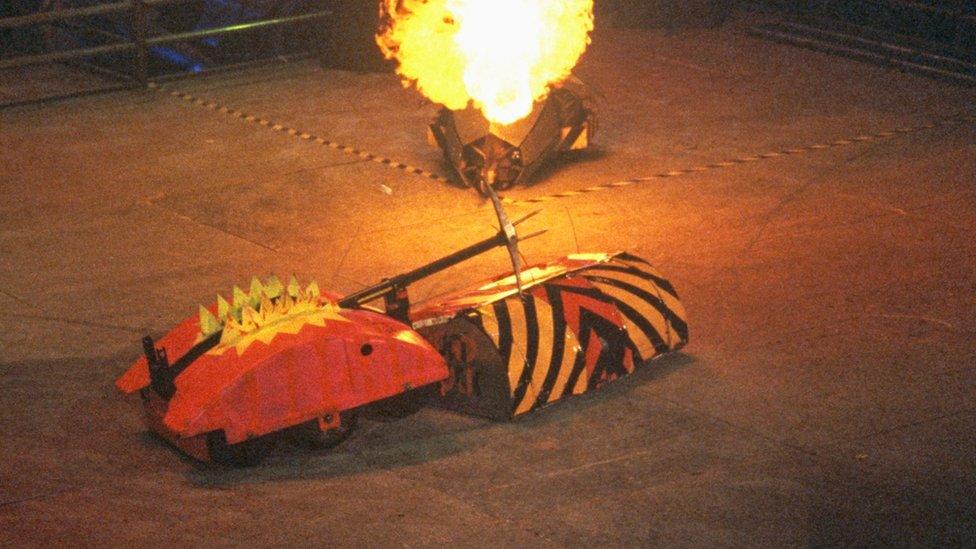
Killertron and Roadblock battling in 1998
It has been suggested to me, especially by teachers, that Robot Wars glorifies violence. Certainly robots can be used to apply violent force to humans. Recently police in Dallas used an RC robot to carry explosives into a building, to kill a man suspected of shooting 12 policemen. It was the first known example of the police using a robot to kill.
This was disquieting for me and many others concerned about the responsible use of robotics and the increasing use of robots in policing, border control and conflict - but that has no more to do with the TV series than chess has to do with warfare.

I have long advocated against the military and civil use of autonomous robot weapons.
I'm a member of the Campaign to Stop Killer Robots - a large international coalition of more than 60 non-governmental organisations - and we have been working tirelessly for a United Nations treaty to prohibit the development and production of autonomous weapons systems.
These are not cool robots and they are designed for very different purposes than what happens in Robot Wars.
Robot Wars is a sport and a TV game show about humans competing against humans by exerting their engineering skills and their ability to finely control their machines under conditions of high stress.
At its best, the show is about the humans behind the robots - their struggle, their stress, their disappointments and their triumphs.
It is also about families coming together, and we even saw the first Robot Wars baby, born during an early show when Dad was a contestant, competing in the reboot.
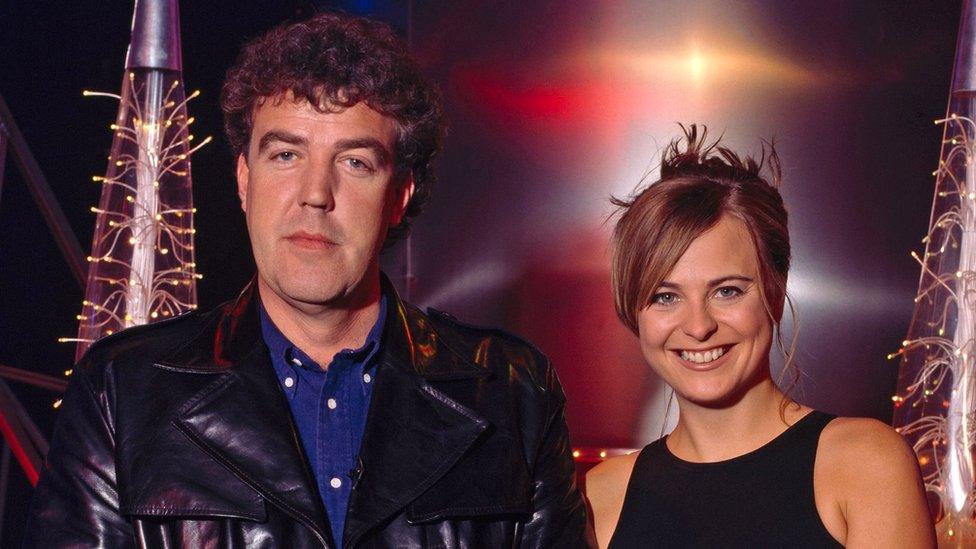
1998: The programme was first hosted by Jeremy Clarkson and Philippa Forrester
Over the many episodes that I have judged in the UK and internationally, I have seen unstoppable sportsmanship and camaraderie.
It is not just about winning, although that is important. It is about a love of imagineering - a word that I learned from contestants - and for creating winning innovations.
When a robot gets badly smashed up, everyone joins in to fix it and lend parts. I have seen competitors lend motors and skilled assistance just before they competed with each other.
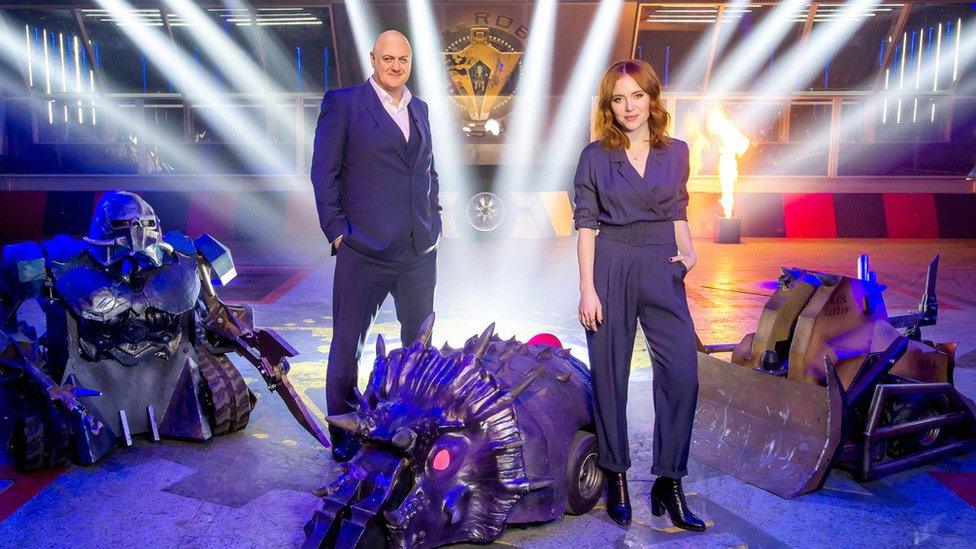
2016: Dara O'Briain and Angela Scanlon are in control
In one world championship match, the Australian team Terror Australis arrived with its robot in pieces from an airport search. Luckily team Diotoir had brought two robots and lent its rival the best one, Nemesis.
If that is not the epitome of non-violent sportsmanship, I don't know what is.
Robot Wars returns on Sunday 24 July at 20.00 BST on BBC Two - or watch on BBC iPlayer
- Published19 July 2016
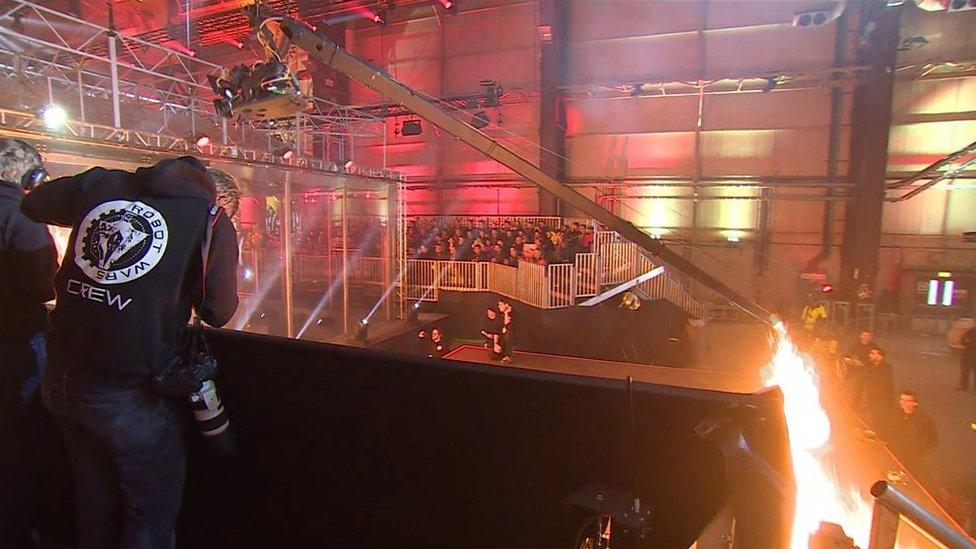
- Published22 July 2016
